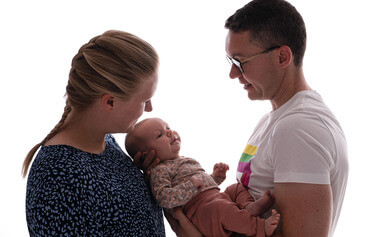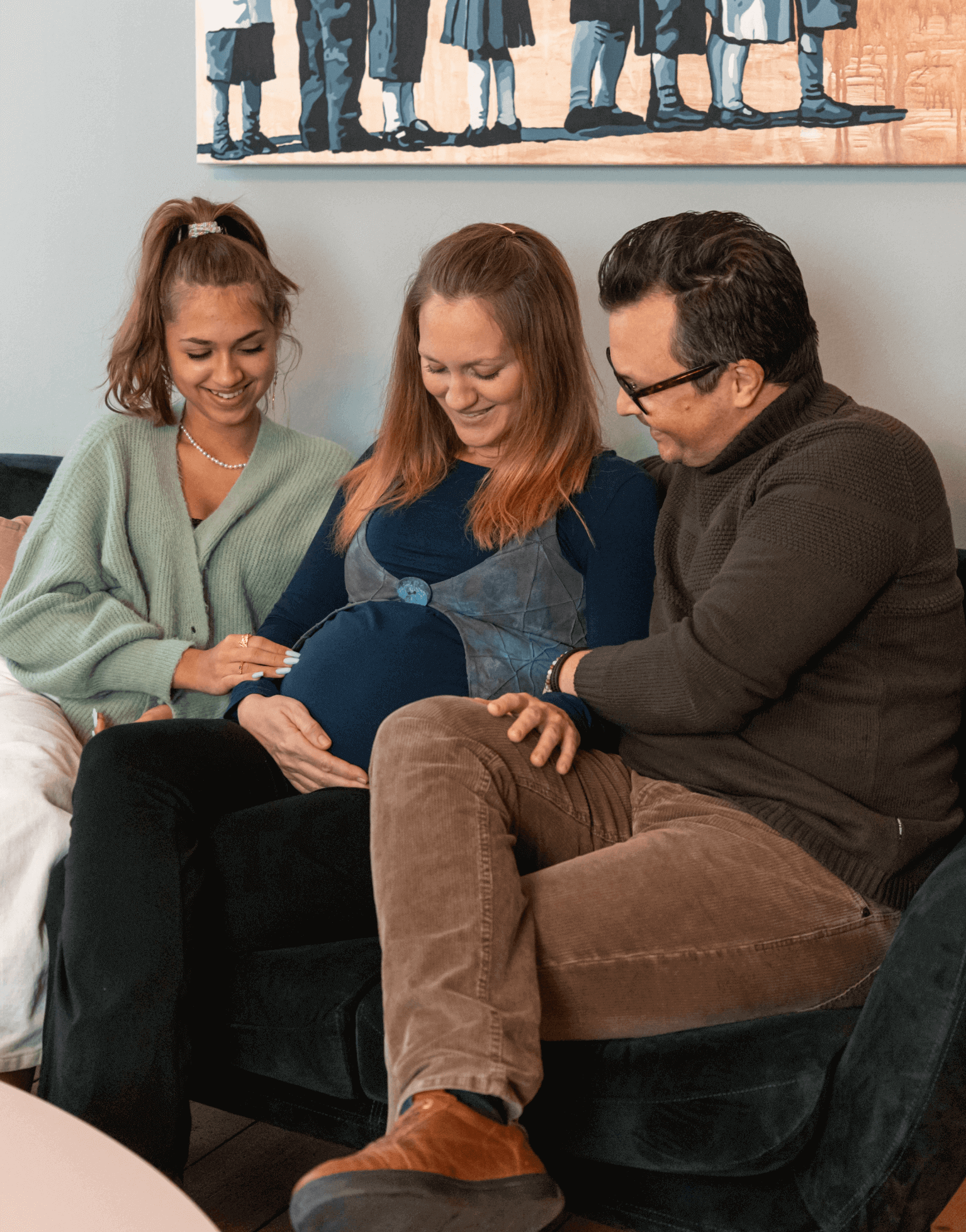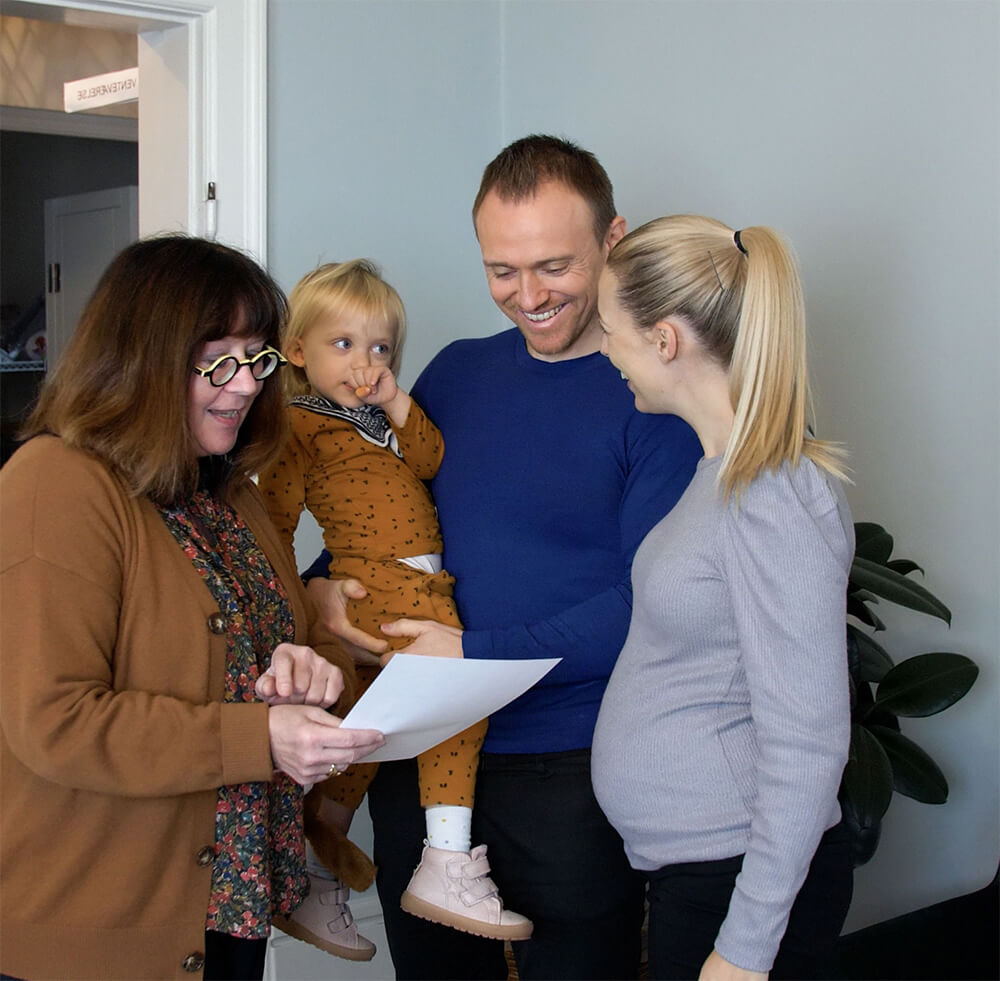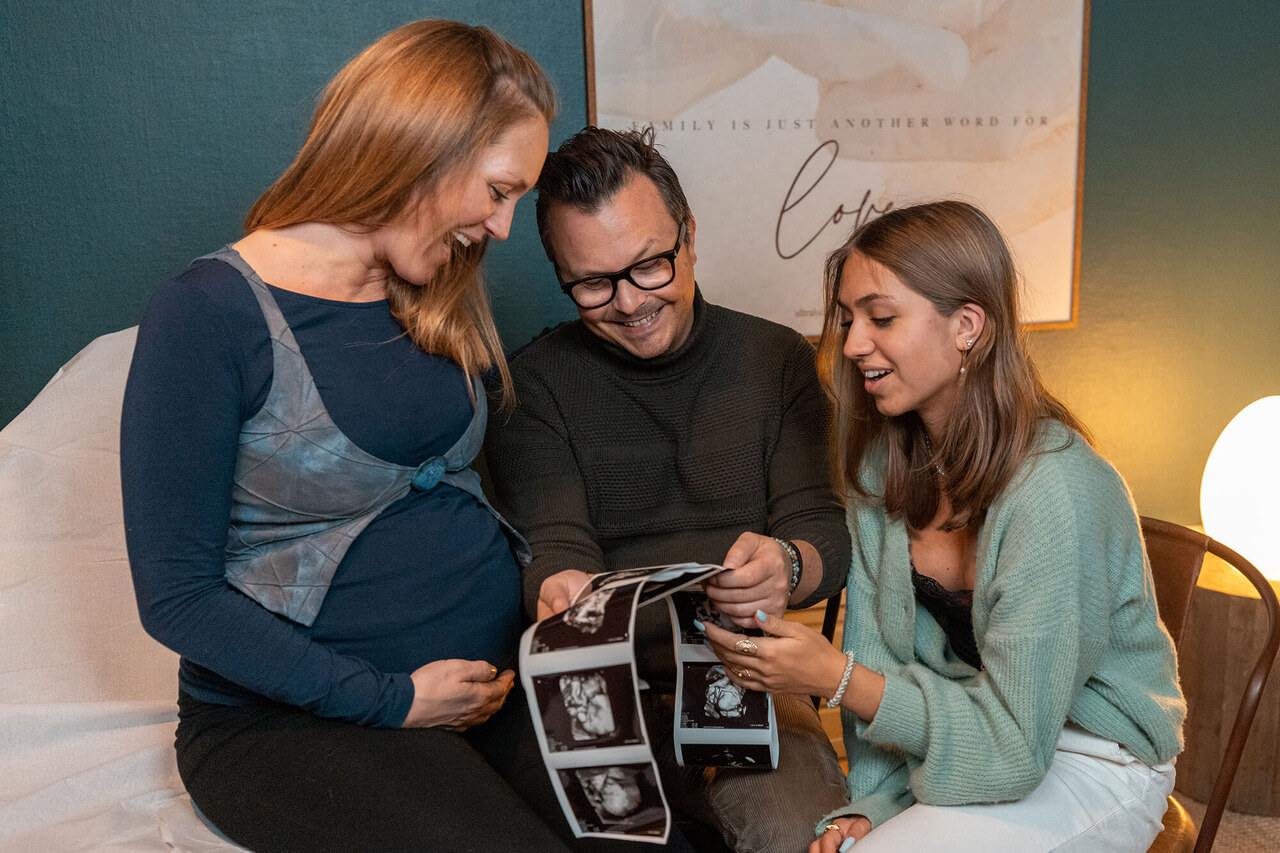Book tid online
Du finder ledige tider i vores
online bookingkalender. Vi
glæder os til at se dig!

Genes2Life or Genes4Life
Genes2Life and Genes4Life is a genetic test which examines 93 and 430 genes respectively. The test is performed on a saliva sample. The test is an investigation into whether you are a carrier of a genetic disease. If the other parent is a carrier of the same disease, the child can inherit the diseased gene from both parents and this can contribute to the child becoming ill. Genes2Life and Genes4Life examine genes that you are not sick of yourself, but that you can pass on to your child.
We are happy to send the test kit to your home. Then you can take the test at home and send it to the laboratory yourself.
Genes2Life and Genes4Life are not a study of the fetus.
Price, Genes2life: DKK 7,400 per person.
Price, Genes4life: DKK 7,900 per person.
For 2 tests on the same appointment, a discount of DKK 1000 is given.

Most people choose to have Genes2Life or Genes4Life done before a pregnancy. It can be in connection with egg or sperm donation, or if you simply want to know a little more about your genes. The study provides an exact knowledge of the studied genes. You get to know whether you are a carrier of a disease or not. You will find a list of the investigated genes here.
Genes2life examines 93 genes, all of which can cause an inherited genetic disease.
Genes4life examines a total of 430 genes and includes Genes2life.
Hereditary diseases are inherited via our genetic material from one generation to the next. In some cases, a disease can skip a generation as it has a recessive mode of inheritance.
Genes2Life and Genes4Life test for autosomal recessive diseases. This means that you are not sick yourself, you may simply be a carrier of a disease gene, which can be passed on to your child. And if the other parent has the same gene, there is a 25% risk of having a sick child.
All people are carriers of 0-6 altered genes. Most often, a pair of parents-to-be will be told that they are carriers of completely different diseases, and then there is no increased risk of disease from these genes in the future child.
Some genetic diseases are linked to the X chromosome, and so only the woman can pass it on. If a woman has a disease on the X chromosome, the future child will have a 50% risk of getting thedisease gene from the mother.
Autosomal recessive inheritance and sex-linked diseases
Both parents-to-be must be carriers of the same genetic condition to pass it on to their future child. This is known as autosomal recessive inheritance.
If both the future father and mother carry the same genetic condition, there is a 25 percent likelihood that each of their future children will be affected (regardless of gender). Meanwhile, the likelihood that the future child is just a carrier, or is completely healthy, is 75 percent.
Likelihood that baby is affected when both mother and father are carriers
Likelihood that baby is affected when only mother is a carrier
»Reassurance that your child is healthy and fast«
A genetic test tests for selected diseases on chromosomes.
You can choose to be tested for 93 or 430 diseases.
Both tests are performed on the basis of a saliva sample
and are therefore completely risk-free.
Watch here as Camilla talks about her experience of getting a carrier test
at the Ultrasound Clinic for Pregnant Women.
Who are Genes2Life and Genes4Life suitable for?
Genes2Life and Genes4Life are suitable for all couples who want to gain valuable insight into their likelihood of passing on genetic conditions to their future children. It could be, for example, cystic fibrosis, which is one of the most frequent genetic diseases in Denmark. It can also be different forms of muscle wasting diseases, such as Spinal muscular atrophy or Duchenne/Becker muscular dystrophy.
- You are trying to get pregnant
- You have had many miscarriages
- You would like to be a sperm donor
- You start assisted fertility treatment
- You begin to achieve pregnancy with donor eggs and/or donor sperm
- You are worried about whether your child has inherited a disease from you
Genetic testing also plays an important role in fertility treatments. One of the reasons for failed fertility treatments can be the presence of genetic mutations that can lead to repeated miscarriages. The test is only performed on people over 18 years of age.
Benefits of being tested with Genes2Life and Genes4Life
If both parents-to-be have the same disease-causing gene, it can be investigated whether the child has the disease by a placenta or amniocentesis test.
Help can be sought in pregnancy planning to avoid having a child with the disease that the parents are carriers of. This can be done by egg sorting (PGT), where only the healthy eggs are used to achieve a pregnancy.
The test must only be performed once in a lifetime.
How are the diseases included in Genes2Life and Genes4Life selected
The selection of genes tested with Genes2life follows the criteria recommended by the American College of Obstetricians and Gynecologists. You can read an overview article here, where the severity of the various diseases is also listed.
The diseases that are examined for are selected according to the following criteria:
- The carrier frequency must be higher than 1:100
- Diseases that are well known
- Diseases with strongly reduced quality of life
- Diseases that require medical or surgical treatment
- Severe disease with early onset
- Diseases that can be diagnosed by placenta or amniocentesis
Genes4life follows the same criteria, only the risk of a carrier must be higher than 2:100, and thus be examined for 430 genes.
Genes2life and Genes4life do not investigate whether you are a carrier of cancer genes or diseases that occur late in life.
How is the test taken?
The test is performed on a saliva sample. It’s quick and easy.
You can come to the clinic, or we can send a test kit to your home.
You can book an appointment for the test on our website. You must allow 30 minutes for consultation and testing.
Which analysis method is used?
Exome analysis is performed using Next Generation Sequencing (NGS), an advanced technique that allows deep sequencing of huge amounts of DNA. Next Generation Sequencing (NGS) is a sequencing method to determine the sequence of nucleotides that make up our genome and is based on massively parallel sequencing of short fragments.
How do I get an answer?
Your results are usually in after 3 weeks. We will contact you by phone. We prefer to always call with the test results – both the good and the difficult ones. You will get a thorough explanation of the result and afterwards we will send the report to you via secure email.
In case you would like us to email you instead, please let us know at your appointment. We will send your report in an encrypted email.



